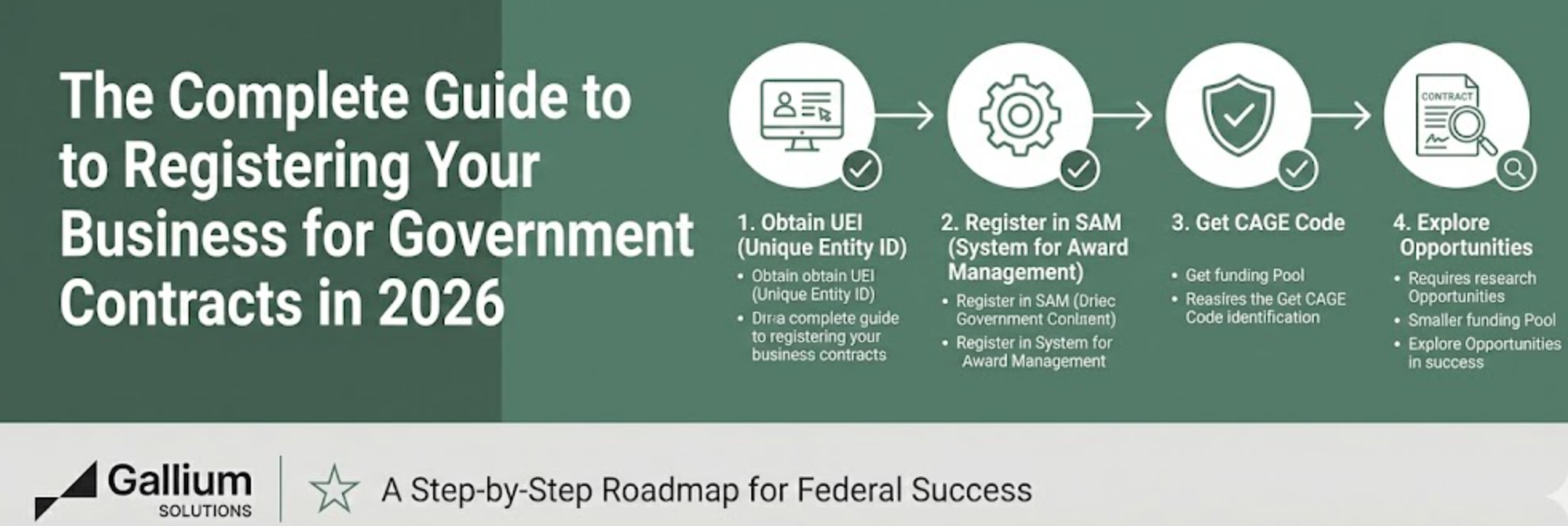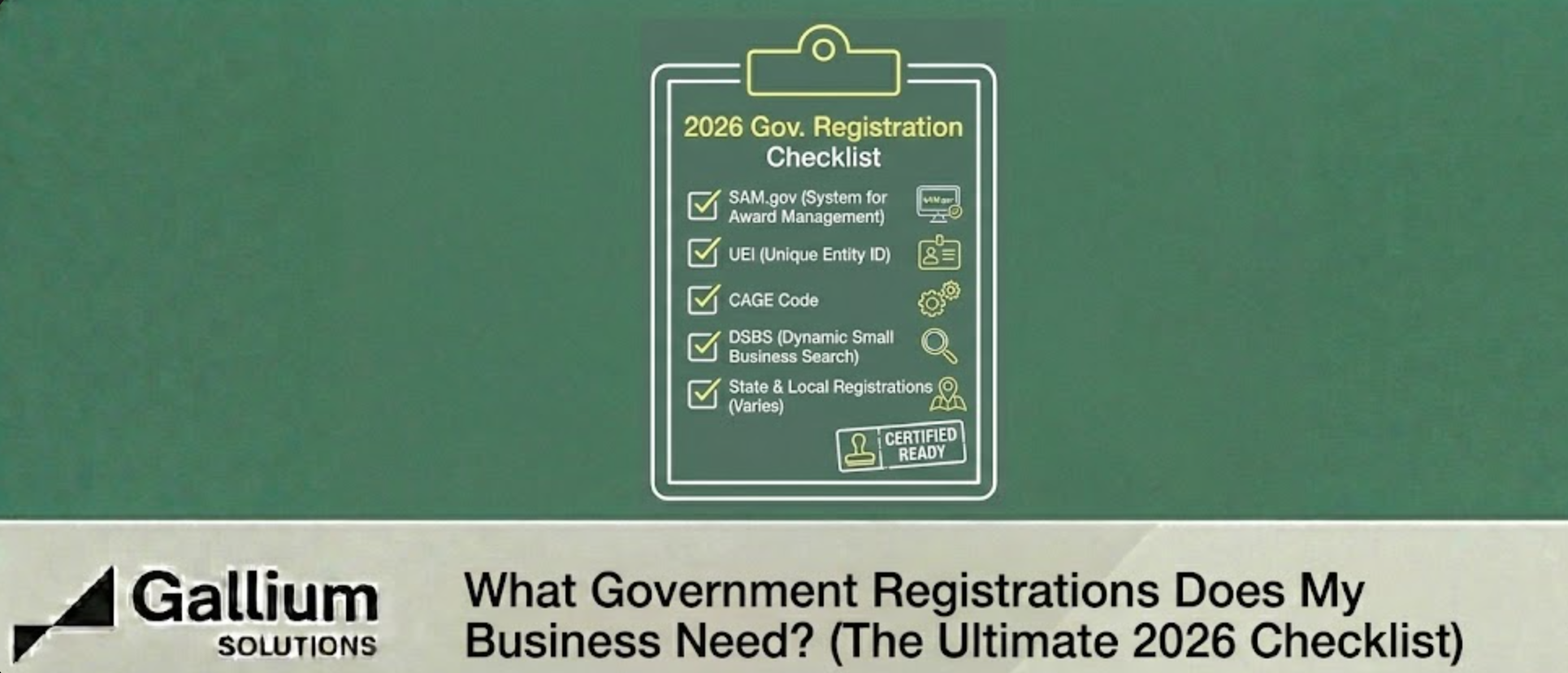How to Build Relationships Before You Become a Government Contractor

So, you want to become a government contractor? You’re not alone, it’s something many companies dream of. With increasing competition, you must take steps to position yourself for success. That starts with building relationships before you ever bid on a contract.
In this article, we break down the finer details of why relationships matter, how to build them, and much more.
Why Relationships Matter Before You Ever Bid
Let’s face it: relationships and networking are important in any business. However, this is even more true if you want to win a government contract.
Here’s why you need to take action:
- Most successful vendors didn’t “cold win” their first contract: They had existing connections or warm intros. Make life easier by building these connections as soon as possible.
- Relationships create early visibility: You hear about opportunities long before they hit public portals. This knowledge positions you to act before competitors.
- Trust moves faster when you’re a known quantity: Buyers are more willing to engage and share information.
- Government buyers prefer low-risk options: Nothing feels safer than working with someone they already know.
- Strategic networking helps you learn: Find out about the agency’s real needs, priorities, and constraints before the RFP drops.
This relationship-building process isn't about gaming the system; it's about genuine connections. It’s about building trust, showing up early, and becoming someone government agencies (buyers) want to work with.
The Key People You Should Be Building Relationships With
You only have so much time for relationship building, so you want to spend it wisely.
Here are your four key targets:
- Small business representatives (OSDBUs): They act as gatekeepers for new vendors and offer valuable guidance and warm introductions. Here’s a comprehensive list of OSDBU resources.
- Contracting officers: Especially those managing small awards, as they often influence decisions and appreciate vendors who show up early and offer solutions.
- Prime contractors: They can open doors through subcontracting opportunities and make key introductions within agencies.
- Industry peers and associations: They’re often the best source of practical insights, referrals, and added visibility in the federal space.
It takes time to build relationships. Don’t force it, but stay persistent and consistent.
Tip: When you don’t have time to network in person, turn your attention online. For example, LinkedIn is an excellent platform for connecting with industry professionals, as discussed below.
Where to Start Showing Up
At this point, you understand the importance of building relationships.
Now, it’s time to answer the million-dollar question: Where do you start?
Here are some ideas:
- Industry days and matchmaking events: Meet agency representatives and prime contractors face-to-face to initiate genuine conversations.
- LinkedIn outreach: Send personalized messages that show you’ve done your homework and understand their mission.
- Capability briefings: Request a brief meeting to highlight how your company addresses specific agency challenges.
- GovCon webinars and local chambers: Join events to connect casually, ask smart questions, and start building your network.
These are just starting points, but if you take them seriously, you’ll begin to build real momentum fast.
Tip: Search SAM.gov for event listings and industry day calendars. These are perfect networking opportunities.
How to Reach Out the Right Way
There is a right and wrong way to reach out and connect with key partners. The right approach will yield dividends. The wrong approach will put you in a bad light, and that’s not what you need on your journey to become a government contractor.
Here are some outreach tips to follow:
- Lead with value, not your ask: Focus on how you can help, not what you want. You’ll eventually get what you wish for, but it takes time.
- Be specific: Say, “We specialize in [X] that aligns with [Y initiative or challenge].”
- Mention past performance or comparable work: Share relevant examples, if available, to build credibility.
- Include a sample outreach message or talking points: Make it easy for your team to engage consistently and confidently.
All of these tips will guide you down the right path. And of course, as you implement them, make minor adjustments based on response and networking preferences.
Play the Long Game—And Win
As noted above, building relationships takes time. It won’t happen overnight.
Set your sights on the future, not the near-term.
Here’s how:
- Start early: Begin building relationships 6–12 months before your first serious bid for a government contract.
- Set a monthly goal: For example, connect with three new people or attend one networking event per month.
- Stay consistent: Small efforts add up and give you a real advantage when it’s time to compete.
The most important thing to remember?
Start today, not tomorrow.
Building relationships takes time, so putting it off will only delay your success.
Frequently Asked Questions
Even with the above information, it’s likely that you still have questions about becoming a government contractor and the many details associated with doing so.
Here are some of the most common:
Why are relationships important in government contracting?
Strong relationships provide early insight into upcoming opportunities and help establish trust with decision-makers. Agencies are more likely to work with vendors they know and trust.
How can a small business win government contracts?
Leverage small business certifications, build relationships with OSDBUs, and look for set-aside contracts. Starting as a subcontractor can also help you gain experience and visibility.
What is the role of a federal contracting officer?
Contracting officers manage the procurement process and have the authority to award contracts. Building rapport early in your conversations can provide insight into their needs and help you effectively position your offer.
How does subcontracting work in government contracts?
Prime contractors often need qualified small businesses to meet subcontracting goals. Partnering as a subcontractor allows you to gain experience and establish a performance history.
How do vendor relationships affect government contracts?
Strong vendor relationships make you a known quantity, which reduces perceived risk for buyers. They also lead to referrals, insights, and potential teaming opportunities.
Ready to Take the Next Step?
You’re now ready to start building relationships that will position you to win your first government contract.
If you need help with relationship-building, go-to-market planning, or any other aspect of your journey to become a government contractor, connect with us to learn more!












